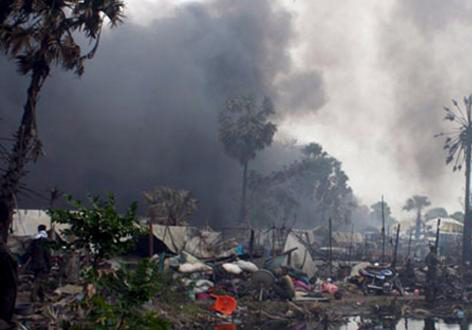The ICJ today joined other organisations in urging Sri Lanka and the international community to measure progress against three key tests before September 2015, to assess the Government’s willingness towards establishing a credible and transparent justice and accountability process.
First, the Government should ensure that any mechanism created to address wartime abuses is defined through genuine consultations with those affected by violations; one that has their confidence and not one imposed on them from the above. To this end the government should be guided by the advice of UN experts that victims be consulted and involved, and it should announce and implement a convincing framework for such a credible process, within a clear timeframe. Given the track record of past domestic inquiries, any mechanism needs to be international, or at a minimum one with a majority of international judges and prosecutors, in order to guarantee its independence and give greater security to those who participate in it.
Second, the Government should take immediate steps towards resolving key outstanding issues to demonstrate its commitment. This includes: repealing the PTA; a substantial scaling down of military presence in the North and East and ending all undue military interference in the political, social, economic and cultural lives of the population of the region; resolving all conflict induced land issues; ending all forms of harassment of civil society, media and human rights defenders particularly in the North and East; and restoring fundamental freedoms fully and equally in all parts of the country. The government must also act to resolve all disappearances in the country, and to this end the President must make the report of the Presidential Commission on Disappearances public when it is finalised in August.
Third, the government must keep its promise to the UN and fully cooperate with the Office of the High Commissioner for Human Rights and allow it full access to any new or additional information it may require. It was on the basis of the promise of such cooperation and additional information, that extra time was provided to the new government in Sri Lanka through a deferral of the OHCHR report.
Until these three tests are satisfactorily met, the international community and the UN Human Rights Council must maintain the fullest scrutiny of Sri Lanka on questions of justice and accountability. Although it is to be acknowledged that since January Sri Lanka’s government has induced some positive change in easing the abusive human rights climate of the previous Presidency, it must also be recognised that many challenges still remain unaddressed.
The full letter is available here: SriLanka-JointOpenLetter-Accountability-Advocacy-2015

